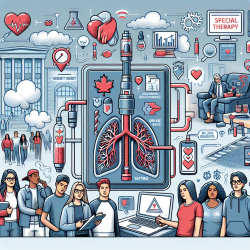Dear Government Health Regulators,
In today's fast-paced world, the demand for healthcare services, particularly in the realm of therapy, is more pressing than ever. This demand, coupled with the ever-present challenge of speech therapy staffing shortages, has placed an unprecedented level of stress on our healthcare system, leading to burnout among many of its stewards. As a Special Education Director with years of experience navigating these waters, I've witnessed firsthand the toll that burnout can take on both providers and regulators alike. It's with this understanding and a sense of urgent optimism that I invite you to consider the transformative potential of virtual therapy.
Virtual therapy, an innovative approach to traditional therapeutic services, offers a compelling solution to many of the challenges we face. By leveraging technology, we can bridge the gap in speech therapy staffing, providing high-quality care to those in need while simultaneously alleviating the pressure on our healthcare system. This model not only ensures that services are more accessible and inclusive but also introduces a new avenue for online therapy jobs, creating opportunities for therapists who may be seeking flexible work arrangements.
The benefits of virtual therapy extend beyond staffing and employment opportunities. For government health regulators, virtual therapy represents a viable strategy to combat burnout by:
- Reducing Administrative Burden: Virtual therapy platforms can streamline paperwork and administrative tasks, freeing up time for regulators to focus on policy development and oversight.
- Expanding Access to Care: By facilitating therapy services online, we can reach underserved populations, reducing the strain on physical healthcare facilities and mitigating the risk of service bottlenecks.
- Enhancing Quality of Care: Virtual therapy allows for consistent, quality services across diverse geographic locations, ensuring that all individuals receive the support they need, regardless of their physical proximity to a therapist.
As we navigate the challenges of our current healthcare landscape, it's imperative that we embrace innovative solutions like virtual therapy. By doing so, we not only address the immediate concerns of speech therapy staffing shortages and the well-being of our healthcare workforce but also lay the groundwork for a more resilient, efficient, and inclusive healthcare system.
I encourage you, as government health regulators, to explore the possibilities that virtual therapy offers. Together, we can transform the face of healthcare, providing relief to those who serve and those in need. Let us be inspired to take bold steps toward a future where burnout is no longer a barrier to care, but a challenge we've overcome through innovation and collaboration.
Warm regards,
A Dedicated Special Education Director










